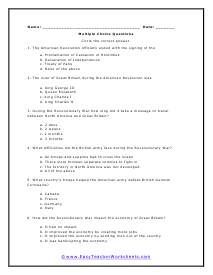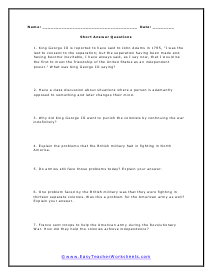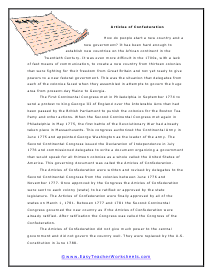From the Declaration of Independence to the Paris Treaty, the Revolutionary War was a tumultuous time in American history. Your students will learn how and why thirteen British colonies decided to establish themselves as a brand new country, the leaders that rose up to speak for the new nation, and the important documents created to chart its course. Short reading passages about important events and people are accompanied by questionnaires, and answer keys are provided.
Project idea: Have your student compare and contrast the Articles of Confederation with the United States Constitution. Why were specific changes made?
































